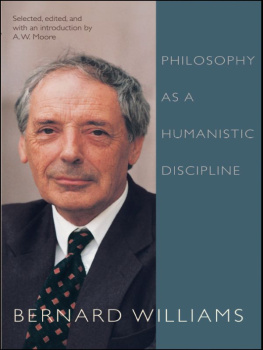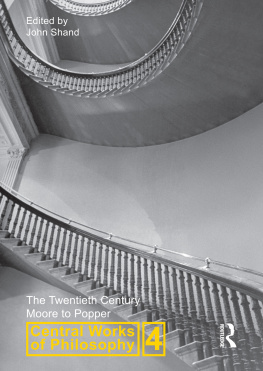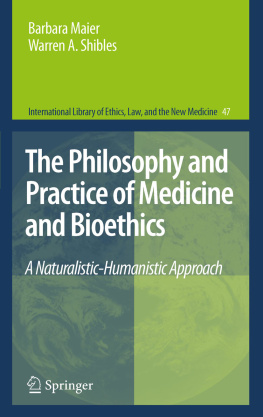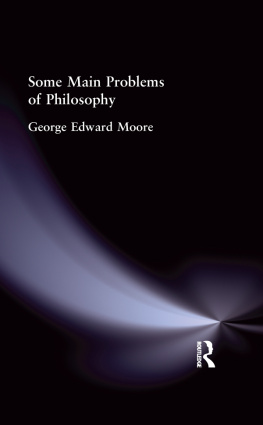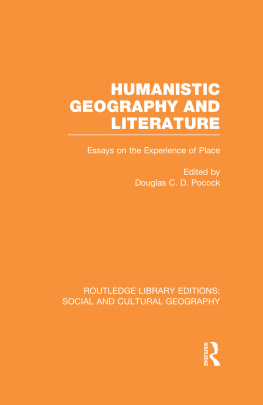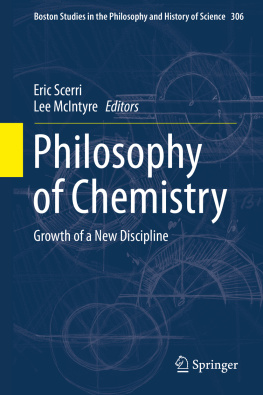Moore A. W. - Philosophy as a Humanistic Discipline
Here you can read online Moore A. W. - Philosophy as a Humanistic Discipline full text of the book (entire story) in english for free. Download pdf and epub, get meaning, cover and reviews about this ebook. City: Princeton, year: 2009;2008, publisher: Princeton University Press, genre: Religion. Description of the work, (preface) as well as reviews are available. Best literature library LitArk.com created for fans of good reading and offers a wide selection of genres:
Romance novel
Science fiction
Adventure
Detective
Science
History
Home and family
Prose
Art
Politics
Computer
Non-fiction
Religion
Business
Children
Humor
Choose a favorite category and find really read worthwhile books. Enjoy immersion in the world of imagination, feel the emotions of the characters or learn something new for yourself, make an fascinating discovery.
- Book:Philosophy as a Humanistic Discipline
- Author:
- Publisher:Princeton University Press
- Genre:
- Year:2009;2008
- City:Princeton
- Rating:3 / 5
- Favourites:Add to favourites
- Your mark:
- 60
- 1
- 2
- 3
- 4
- 5
Philosophy as a Humanistic Discipline: summary, description and annotation
We offer to read an annotation, description, summary or preface (depends on what the author of the book "Philosophy as a Humanistic Discipline" wrote himself). If you haven't found the necessary information about the book — write in the comments, we will try to find it.
Philosophy as a Humanistic Discipline — read online for free the complete book (whole text) full work
Below is the text of the book, divided by pages. System saving the place of the last page read, allows you to conveniently read the book "Philosophy as a Humanistic Discipline" online for free, without having to search again every time where you left off. Put a bookmark, and you can go to the page where you finished reading at any time.
Font size:
Interval:
Bookmark:
Philosophy as a Humanistic Discipline
Philosophy as a Humanistic Discipline
Bernard Williams
Selected, edited, and with an introduction
by A. W. Moore
PRINCETON UNIVERSITY PRESS
PRINCETON AND OXFORD
Copyright 2006 by Princeton University Press
Published by Princeton University Press, 41 William Street,
Princeton, New Jersey 08540
In the United Kingdom: Princeton University Press,
3 Market Place, Woodstock, Oxfordshire OX20 1SY
All Rights Reserved
Third printing, and first paperback printing, 2008
eISBN: 978-1-40082-709-1
The Library of Congress has cataloged the cloth edition of this book as follows
Williams, Bernard Arthur Owen.
Philosophy as a humanistic discipline / Bernard Williams ; selected,
edited, and with an introduction by A.W. Moore.
p.cm.
Includes bibliographical references.
1. Philosophy. I. Moore, A.W., 1956 II. Title.
B29.W493 2006
101dc222005043029
British Library Cataloging-in-Publication Data is available
This book has been composed in Sabon
Printed on acid-free paper.
press.princeton.edu
Printed in the United States of America
109876543
Contents
Patricia Williams
A. W. Moore
Preface
Patricia Williams
It is sad, but appropriate, that my final, practical gesture of appreciation and love for Bernard should be to help with the publication of the last three collections of his philosophical writings. The Sense of the Past: Essaysin the History of Philosophy, Philosophy as a Humanistic Discipline, and In the Beginning Was the Deed: Realism and Moralism in PoliticalArgument will be published by the Princeton University Press three years after his death in June 2003. Bernard helped and encouraged me in countless ways in my publishing career, bearing out my conviction that editors in university presses should be judged by their choice of advisers as well as by the authors they publish.
Like many who knew him, I thought Bernard was indestructibleand so, I think, did he! But when he was recovering from the drastic effects of his first bout of treatment for cancer in 1999, we talked for the first, and almost the only, time about what should happen to his papers if he could not finish Truth and Truthfulness. Thankfully, he published it in 2002, although he would have expanded it in several ways if time had not seemed so pressing. What I learned from this conversation was that Bernard had no faith in his, or any philosophers, ability to predict whose work would be of any lasting interest to their successors. That was for the future to decide. So, although he was totally against what he called posthumous laundry lists, he refused to express any other opinion about what should be published after his death. Fortunately for me, he did specify that, although I should handle the practicalities of publishing as I thought fit, he would ask a young philosopher of gritty integrity and severity of judgement who understood the sorts of things he had been trying to do in philosophy to keep me on the philosophical straight and narrow. That was Adrian Moore. I am deeply grateful to him for the careful consideration he has given to the complicated, general issues of publication and re-publication, and for his friendship. He is the sole architect of this particular volume.
My heartfelt thanks, also, to Walter Lippincott, the Director of the Princeton University Press, and his staff in Princeton and Oxford, whose commitment to Bernard as an author and to high standards of editing, design, production, and marketing is so valuable at a time when scholarly publishing faces complex financial challenges.
Finally, I should like to acknowledge the publishers who have kindly given their permission to publish material in this volume.
1. Tertullians Paradox. Reprinted with permission of Scribner, an imprint of Simon&Schuster Adult Publishing Group, from NewEssays in Philosophical Theology, ed. Anthony Flew and Alasdair MacIntyre. Copyright 1955 by Anthony Flew and Alasdair MacIntyre.
2. Metaphysical Arguments in The Nature of Metaphysics, ed. D. F. Pears (London: Macmillan, 1957). Reproduced with permission of Palgrave Macmillan.
3. Pleasure and Belief in Proceedings of the Aristotelian Society, suppl. vol. 33 (Oxford: Blackwell, 1959).
4. Knowledge and Reasons in Problems in the Theory of Knowledge, ed. G. H. von Wright (The Hague: Nijhoff, 1972). 1972 by Martinus Nijhoff, The Hague, Netherlands. With kind permission of Springer Science and Business Media.
5. Identity and Identities in Identity, ed. Henry Harris (Oxford: Oxford University Press, 1995). By permission of Oxford University Press.
6. The Primacy of Dispositions in Education and Values: The RichardPeters Lectures, ed. Graham Haydon (London: University of London Institute of Education, 1987).
7. The Structure of Hares Theory in Hare and Critics: Essays inMoral Thinking, ed. Douglas Seanor and N. Fotion (Oxford: Oxford University Press, 1988). By permission of Oxford University Press.
8. Subjectivism and Toleration in A. J. Ayer: Memorial Essays, ed. A. Phillips Griffiths (Cambridge: Cambridge University Press, 1992).
9. The Actus Reus of Dr. Caligari in University of PennsylvaniaLaw Review 142 (1994).
10. Values, Reasons, and the Theory of Persuasion in Ethics, Rationality,and Economic Behaviour, ed. Francesco Farina, Frank Hahn, and Stefano Vannucci (Oxford: Oxford University Press, 1996). By permission of Oxford University Press.
11. Moral Responsibility and Political Freedom in Cambridge LawJournal 56 (Cambridge: Cambridge University Press, 1997).
12. Tolerating the Intolerable in The Politics of Toleration in ModernLife, ed. Susan Mendus (Durham: Duke University Press, 2000).
14. Political Philosophy and the Analytical Tradition in PoliticalTheory and Political Education, ed. Melvin Richter (Princeton: Princeton University Press, 1980).
15. Philosophy and the Understanding of Ignorance in Dioge`ne 169 (1995). Also published in English by Berghahn Books, Oxford.
16. Philosophy as a Humanistic Discipline in Philosophy 75 (Cambridge: Cambridge University Press: 2000).
Introduction
A. W. Moore
Bernard Williams (19292003) was one of the greatest twentieth-century British philosophers. His work, which was unusual in its range, was always marked by an equally unusual combination of rigour, imagination, and depth, as well as by a thorough humanity. The essays published here bear copious witness to these and other facets of his extraordinary intellect.
Between them they span WProblems of the illiamss entire career. Essay 1, Tertullians Paradox, was his first publication. It appeared half a century ago. Essay 13, The Human Prejudice, was given as a lecture shortly before he died.
Williams himself brought out three collections of essays during his lifetime: Problems of the Self, The present collection, which does not overlap with any of these, in effect completes the set.
It does not, however, contain everything that it might have contained. There remain both published and unpublished essays by Williams that have never been anthologized and that I have not included here, either because they overlap with other published work of his or because they were too occasional. (I say a little more about this in a note on the selection at the end of this introduction.)
In the prefaces to his own collections Williams cites similar grounds for excluding material. But he also cites thematic grounds. In the preface to Problems of the Self
Next pageFont size:
Interval:
Bookmark:
Similar books «Philosophy as a Humanistic Discipline»
Look at similar books to Philosophy as a Humanistic Discipline. We have selected literature similar in name and meaning in the hope of providing readers with more options to find new, interesting, not yet read works.
Discussion, reviews of the book Philosophy as a Humanistic Discipline and just readers' own opinions. Leave your comments, write what you think about the work, its meaning or the main characters. Specify what exactly you liked and what you didn't like, and why you think so.

